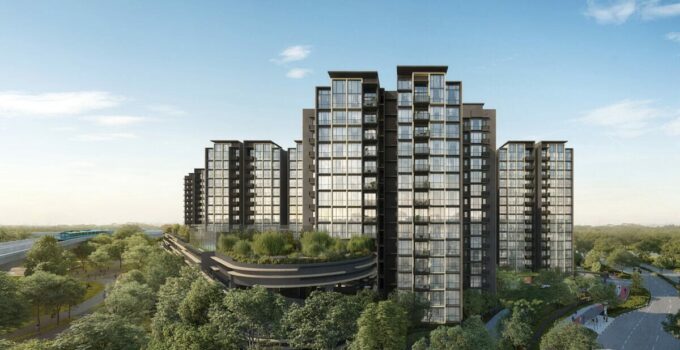Buying your first private condominium in Singapore is a milestone that blends lifestyle aspirations with financial planning. For many, it represents independence, long-term stability, and access to facilities that HDB flats cannot provide.
Yet, the path to ownership is not always straightforward. Between government regulations, loan restrictions, and the wide variety of new projects, first-time buyers often find themselves uncertain about where to begin.
This guide walks through each stage in detail, breaking down the process into manageable steps, supported by practical examples and market insights.
Why private condominiums are such a draw for first-time buyers
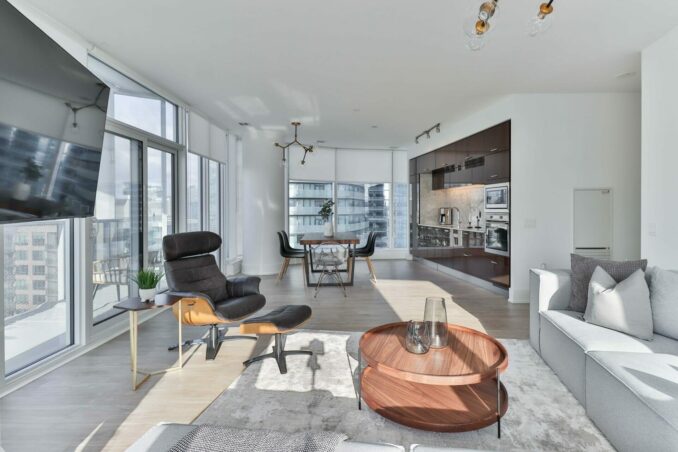
Source: condolaunch.sg
The appeal of private condominiums lies in exclusivity and lifestyle. Buyers gain access to secure gated communities, facilities such as gyms and pools, and often a higher standard of finish. URA data highlighted that in 2024, around 9,000 new private homes were sold, an increase of nearly 10% from the previous year. Analysts attribute part of this surge to first-time buyers who skipped the HDB route.
For younger Singaporeans, condos are often about more than just owning property. They offer:
- Convenience: Many projects sit next to MRT lines or major commercial hubs.
- Community: Facilities encourage interaction among residents.
- Investment security: Properties in prime or growth districts typically see stronger appreciation.
When you add the sense of privacy compared to public housing, it is easy to see why more buyers enter the condo market as their first major purchase.
Setting a budget that actually works in the long run
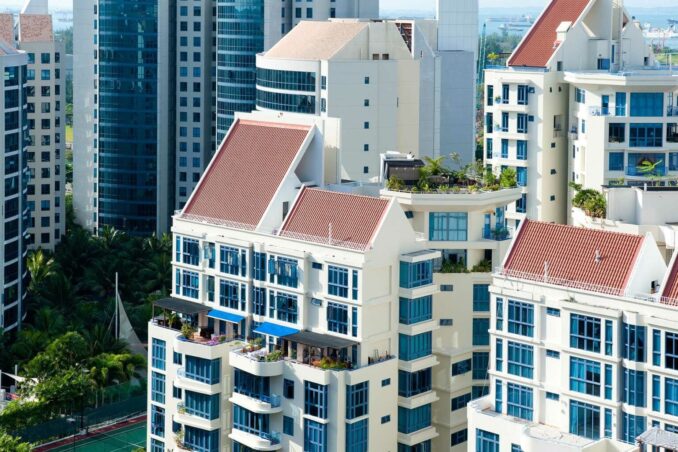
Source: expatica.com
Before visiting any showflat, the first task is setting your budget. Condo purchases involve more than just the per-square-foot price. Costs include stamp duties, legal fees, and renovations. Missing these details can derail financial planning later.
Here are the most common cost components:
- Downpayment: At least 25% of the property value. Of that, 5% must be paid in cash.
- Buyer’s Stamp Duty (BSD): Calculated on a sliding scale, with higher amounts for properties above S$1.5 million.
- Additional Buyer’s Stamp Duty (ABSD): Applies to foreigners and those buying a second property.
- Legal and conveyancing fees: Usually S$2,500–S$3,500.
The Monetary Authority of Singapore enforces a Total Debt Servicing Ratio (TDSR) of 55%. That means your monthly debt repayments, including the housing loan, cannot exceed 55% of your monthly income. For someone earning S$10,000 monthly, the maximum allowable debt repayment is S$5,500. This check ensures buyers do not over-leverage, but it also limits how large a loan you can realistically take.
Location choices that blend lifestyle with practicality
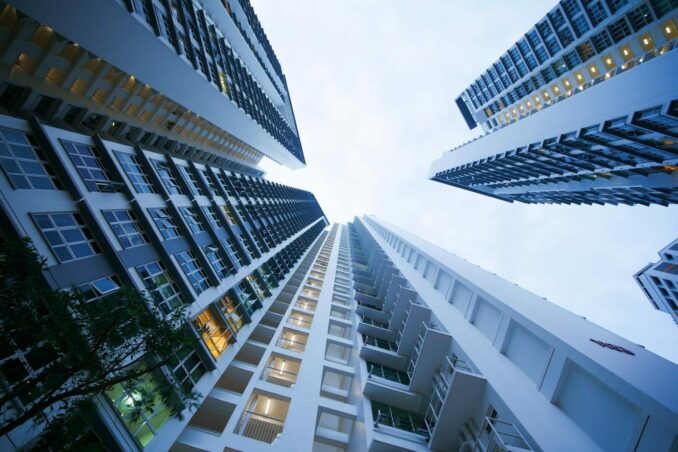
Source: condolaunch.sg
Location shapes both daily comfort and future returns. Condos near transport and lifestyle clusters often sell faster and hold value better. Skye at Holland is a perfect example. Situated near Holland Village MRT, it combines quick connectivity with trendy dining, shopping, and recreational spots. Such projects are appealing to professionals who value both convenience and an active lifestyle.
When comparing options, consider:
- Distance to MRT lines and expressways.
- Presence of nearby schools if you plan for family needs.
- Availability of supermarkets, malls, and medical facilities.
- Urban Redevelopment Authority (URA) master plans that could boost future growth.
Even if you do not plan to resell soon, buying in a location with solid fundamentals reduces risks and supports long-term appreciation.
What to know before stepping into a showflat
Showflats are designed to impress. Developers invest heavily in polished interiors and clever layouts. Yet, buyers should always look beyond the glamour. A few practical checks matter far more than the staged décor.
Look closely at:
- The actual floor plan versus the display layout.
- Room dimensions — especially for bedrooms, which can feel smaller in reality.
- Window placement and natural light.
- Kitchen size and storage space, often overlooked during the first viewing.
Statistics show that over 70% of buyers make decisions within two showflat visits. That highlights why preparing questions in advance can prevent rushed commitments. Always ask about maintenance fees, car park ratios, and the developer’s track record.
The Option to Purchase and why it matters
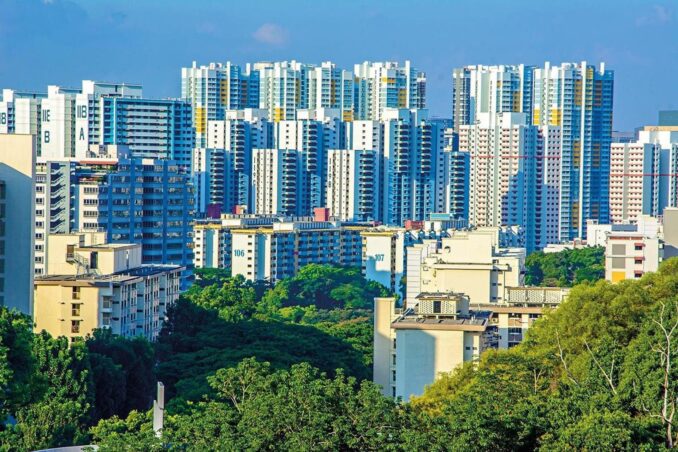
Source: homeanddecor.com.sg
Once you settle on a unit, the next step is securing the Option to Purchase (OTP). This involves paying a 5% booking fee. The OTP gives you exclusive rights to the unit for three weeks. During this time, you must finalize financing and decide whether to proceed. If you back out, part of your booking fee may be lost.
The OTP stage often causes the most anxiety for first-timers, because it feels like a ticking clock. Having an in-principle loan approval before reaching this point eases the pressure and allows you to make a confident decision.
Arranging financing and securing an in-principle approval
Banks in Singapore are strict with housing loans. An in-principle approval (IPA) is essential because it confirms how much the bank is willing to lend based on your income and debts. Without an IPA, you risk losing the OTP if financing fails.
Most banks issue an IPA within a week, provided you submit payslips, CPF statements, and tax documents. Once approved, you can exercise the OTP and proceed. Remember: fixed-rate and floating-rate packages exist, and choosing between them should reflect your appetite for risk and your financial stability.
The role of your lawyer and conveyancing costs
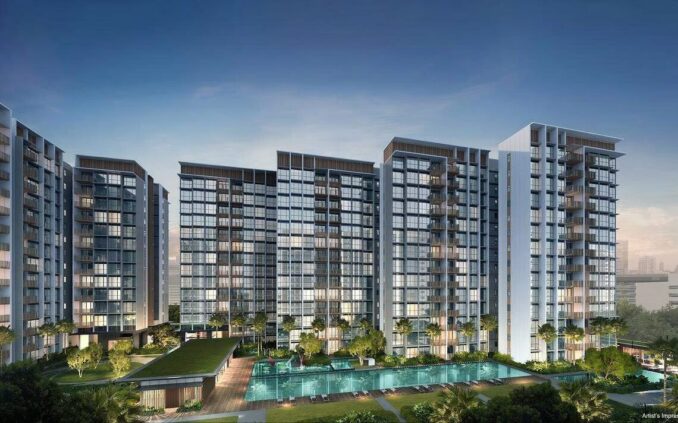
Source: condolaunch.sg
A property transaction in Singapore requires a lawyer to complete legal conveyancing. The lawyer ensures that the property title is clean, handles loan disbursements, and files necessary documents with the authorities. Fees typically range between S$2,500 and S$3,500. While this adds to costs, it is an indispensable safeguard against legal complications.
Progressive payment schemes for new launches
For uncompleted condos, Singapore uses a progressive payment scheme. Buyers do not pay the full sum at once. Instead, payments follow construction milestones, starting with foundation work and moving toward completion. This structure reduces initial strain but requires long-term planning.
Example schedule:
- 5% booking fee.
- 15% upon signing the Sale and Purchase Agreement.
- 10% after foundation completion.
- 10% after reinforced concrete framework.
- Remaining tranches follow as the project nears completion.
With construction timelines often stretching three to four years, CPF contributions and salary increments can gradually support these payments.
Hidden costs many buyers overlook
Monthly maintenance fees are unavoidable. They fund landscaping, facilities, and security staff. In smaller developments, fees might be S$250 per month, but in projects with extensive facilities, they can exceed S$1,000. Property tax and insurance also add to recurring expenses. Many first-timers overlook these, only to feel the pinch later.
Long-term growth factors worth tracking
Source: thesmartlocal.com
Not all condos grow in value equally. Price resilience depends heavily on infrastructure projects and zoning changes. URA data shows that homes near new MRT lines can enjoy price lifts of over 10% within five years of the station’s opening. Being aware of such urban development plans helps buyers align with areas poised for growth.
One notable example is Penrith, a project that stands out for its design quality and location fundamentals. Properties like this demonstrate how strong developer reputation and well-planned surroundings create lasting appeal, even in competitive markets.
The final stage: key collection and defects inspection
When the Temporary Occupation Permit (TOP) is issued, owners can collect their keys. Developers usually give buyers a 12-month defects liability period. This is your chance to flag issues with doors, flooring, plumbing, or electrical points. Skipping a detailed check could mean paying out-of-pocket later. Bringing in a professional defects inspector can be worth the fee, especially if you are new to property ownership.
Final thoughts for first-time buyers
Owning a private condominium in Singapore is a significant step that combines lifestyle and investment goals. By breaking the journey into structured stages — budgeting, shortlisting, securing an IPA, and moving in — the process becomes clearer and less intimidating. For first-timers, the key is patience, research, and realistic planning. With the right preparation, your first condo purchase can become both a comfortable home and a solid long-term asset.


